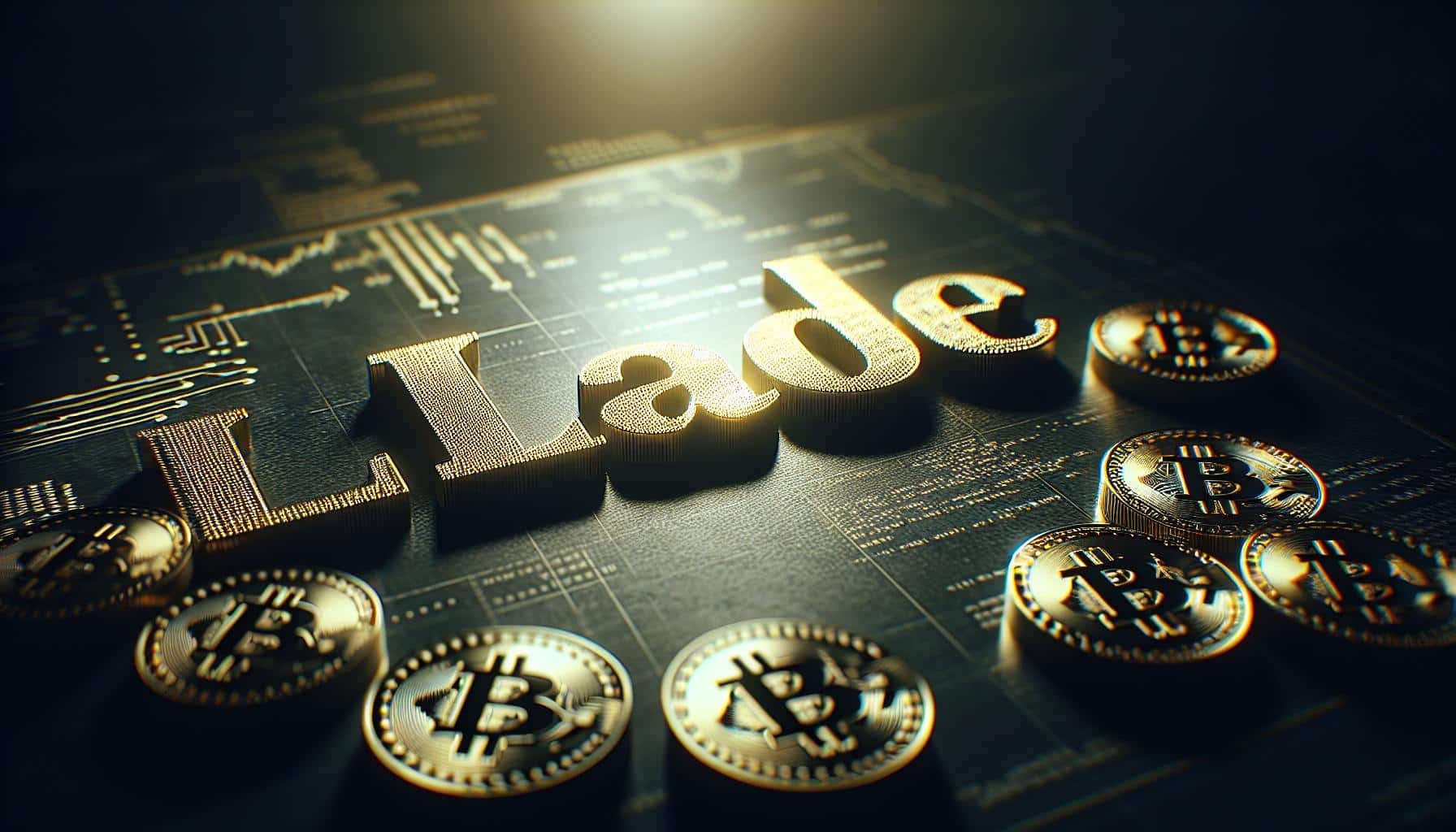Unmasking the TrumpCoin Scam: A Cautionary Tale
In the ever-evolving world of digital currencies, it’s hard to separate the wheat from the chaff. One such crypto-coin that’s been generating buzz is TrumpCoin. But is it a golden opportunity or a sophisticated scam?
As you delve deeper into the crypto market, you’ll encounter a plethora of coins, each promising high returns and unique features. TrumpCoin, named after the 45th US president, is one such digital asset that’s caught the attention of many. However, with its controversial name and unclear operations, it’s also raised numerous red flags.
In this article, we’ll examine the legitimacy of TrumpCoin, helping you discern if it’s a worthy investment or a deceptive trap. Stay tuned as we unravel the truth behind this contentious cryptocurrency.
Understanding Cryptocurrency and Scams
Navigating the world of cryptocurrency and avoiding potential scams might seem like a daunting task. Fluent comprehension of digital currencies and the ability to spot a scam are essential in the cryptocurrency trade.
The Rise of Cryptocurrencies
Cryptocurrencies, with Bitcoin as the first and most famous one, made their debut in 2009. In essence, they’re virtual or digital currencies that use cryptography for security. A significant feature of them is they’re largely decentralized systems, typically based on blockchain technology, a distributed ledger enforced by disparate computer networks. There are more than 5,000 cryptocurrencies listed on public exchanges, including controversial ones like TrumpCoin.
With their rise, cryptocurrencies have become both a new investment frontier and a new sort of scam. They’ve democratized the world of finance but also thrown open the doors to fraudsters. Cryptocurrency scams trick unsuspecting investors and leads them to lose their hard-earned money.
Spotting Cryptocurrency Scams
Here are four common signs of cryptocurrency scams:
- Unrealistic Promises: Be wary of a coin that promises a high or unrealistic return. No investment is ever a sure bet. If it sounds too good to be true, it probably is.
- Opaque Operations: Legitimate cryptocurrencies have transparent operations. They disclose complete information about their developers, where they’re registered, and their financial status.
- Rapid upticks in price and trade volume: Ideal cryptocurrencies grow steadily over time. Rapid price and volume changes can be a sign of market manipulation.
- Pump and Dump Schemes: These schemes involve inflating the price falsely through misinformation, then selling off the bloated coins.
Equipping yourself with a basic understanding of what a credible cryptocurrency looks like could help you steer clear from scams. Always do your own research before investing in any cryptocurrency.
The Advent of TrumpCoin
When glancing at the landscape of digital currencies, you may come across TrumpCoin. It’s a name that, like the person that it’s tied to, tends to provoke a strong reaction.
What is TrumpCoin?
TrumpCoin, launched in 2016, is a blockchain-based digital currency named after former U.S. President Donald Trump. Unlike Bitcoin or Ethereum, digital currencies that aimed to disrupt the financial system, TrumpCoin embodies a peculiar focus. Its creators purported to support Donald Trump and his political views through this cryptocurrency. It’s not a project of Trump’s making, but rather, was born from followers who deemed it a novel method of fundraising and sharing political ideology. Despite the political gravitas, it’s essential to consider a critical aspect. TrumpCoin doesn’t have the backing of Donald Trump nor his affiliates, and as far as records show, the former President has not acknowledged this digital currency publicly.
The Alleged Political Motive Behind TrumpCoin
With the political motive of TrumpCoin stated, does its existence stretch beyond being a namesake? Supporters claim its primary purpose is to support the ideologies of Donald Trump. They believe TrumpCoin’s value will increase as more people get to identify with these ideologies, therein lies the potential return on investment. However, skeptics linger, arguing that its real motive might follow the many fraudulent schemes in the cryptocurrency world. Given claims of the opaque operation, swift price fluctuations, and absence of regulation, they warn potential investors to tread carefully. Indeed, TrumpCoin’s intentions might be genuine, but an observer can’t deny the alleged scam-signs mirrored in the coin’s operations.
Is it just another cryptocurrency hoping to catch an unwary investor? Or a genuine digital currency with a political agenda? It’s the question that looms over the curious case of TrumpCoin. You’re urged to research extensively and consult financial advisors before deciding to hop onto the TrumpCoin train.
Analyzing the TrumpCoin Scam Allegations
Continuing from the previous discussion on the controversial emergence of TrumpCoin, this segment delves into the specific allegations associated with possible fraudulent acts within TrumpCoin operations. The analysis dissects the gap between value promises and reality, as well as the claims of high returns.
The Promises Versus the Reality
In cryptocurrency investments, one encounters lofty promises. TrumpCoin supporters trumpet potential profits and political unity. However, actions speak louder than words, and thus, an objective analysis becomes paramount. Specified by critics, several issues plague TrumpCoin’s credibility.
First, the lack of tangible financial backing for TrumpCoin raises red flags. While most credible cryptocurrencies possess clear, identifiable value drivers, TrumpCoin’s valuation hinges tentatively on political sentiments, a volatile foundation.
Secondly, the TrumpCoin project’s operations remain opaque. While ambiguity reigns in many cryptocurrency operations, investors find solace knowing a team of qualified professionals run the show. In TrumpCoin’s case, information about its development team stays shrouded, further deepening skepticism.
Lastly, consistent price fluctuations, an inherent attribute of cryptocurrency markets, affect TrumpCoin vastly. Such instability induces doubt and fosters an environment conducive to potential scams.
Unpacking the Claims of High Returns
Every investor seeks high returns and TrumpCoin’s alleged promise of the same proves alluring. However, an in-depth analysis begs the question: how achievable are these high returns?
For regular cryptocurrencies, return rates correlate with the blockchain’s practical functionality and mass adoption potential. TrumpCoin, however, relies heavily on Donald Trump’s political climate and speculative sentiment, neither of which guarantee stability or steadiness in growth.
Additionally, the lack of a broad investor base further limits return potential. Without an expansive, diverse market, the price of a singular coin remains volatile, thereby posing significant investment risks.
Highlighting the issues linked with TrumpCoin’s promises and high return claims is not to instill fear, but rather, it’s to provide investors important information to consider before investing. Always consult reliable financial advice and conduct thorough research before venturing into any cryptocurrency investments, including TrumpCoin.
The Legal Implications of TrumpCoin Scam
Regulators scrutinize the questionable aspects of TrumpCoin, and legal implications begin to emerge under focus. This section explores the salient role of financial authorities and possible repercussions for the fraud perpetrators.
The Role of Financial Authorities
As overseers of financial operations, financial authorities, such as the Securities and Exchange Commission (SEC), Federal Trade Commission (FTC), and Financial Crimes Enforcement Network (FinCEN), hold pivotal roles in maintaining the integrity of the currency market. They primarily aim to protect potential investors from scams like TrumpCoin. From the preliminary review of ICOs to maintaining a stringent vigil on trades, financial authorities serve to ensure legality in these operations.
Take SEC, for instance, it often intervenes when cryptocurrencies like TrumpCoin, veer into the realm of securities. It has the authority to initiate disciplinary actions if these entities disobey federal securities laws. On a similar note, the FTC could step in if TrumpCoin is proven to incorporate deceptive or unfair business practices.
Potential Consequences for the Perpetrators
For the individuals and entities operating TrumpCoin, legal repercussions could be impactful if their practices are unlawful. The actions attain a criminal bearing in instances of investment fraud or manipulation schemes, potentially leading to severe penalties. A perpetrator could face hefty fines or jail time, depending on the gravity of their misconduct.
The Bernie Madoff case, for example, serves as a reminder of how harshly financial fraud is punished. Madoff orchestrated one of the most notorious Ponzi schemes in history and received a prison sentence of 150 years.
It’s worth noting that legal implications aren’t limited to U.S. jurisdictions. If TrumpCoin’s activities span across borders, international law enforcement agencies would likely be involved in the investigation, potentially leading to extraditions and trials conducted in foreign jurisdictions. Therefore, it’s critical for potential investors to be fully aware of these potential risks and consider these implications before investing in cryptocurrencies like TrumpCoin.
Protecting Yourself from Cryptocurrency Scams
Today’s digital financial marketplace brings forth a diverse landscape of opportunities. But along with great prospects lie considerable threats. In the unregulated world of cryptocurrency, scams like the TrumpCoin case are not uncommon. This section outlines how you can equip yourself with the crucial knowledge to identify and evade such deception.
Essential Tips for Safe Cryptocurrency Trading
One crucial step towards safe cryptocurrency trading lies in enforcing strong security practices on your digital wallets. Storing majority of your assets in cold wallets, ones that aren’t constantly hooked to the internet, limits exposure to potential hackers.
Next, make sure to perform diligent research when considering any cryptocurrency investment. Look for proven teams, clear value propositions, and transparent operating practices. Avoid projects that promise unrealistically high returns.
Always verify the credibility of exchange platforms used for trading. Platforms with robust security features, positive user reviews, and recognition from reputable bodies should be the priority.
When engaging in online discussions, be wary of hype. Pump-and-dump schemes often begin in online forums and social media conversations.
Lastly, adopt a diversified portfolio strategy. By investing in a variety of cryptocurrencies, you reduce the risk of a single investment going sour.
Learning From the TrumpCoin Case
The TrumpCoin case serves as a prime example of potential pitfalls. TrumpCoin’s unstable price, lack of strong financial backing, and opaque operations echo common red flags. Consequently, the case reinforces the importance of conducting comprehensive research before making any cryptocurrency investment.
The regulation concerns surrounding TrumpCoin also highlight the importance of legal aspects in the cryptocurrency space. It’s crucial to stay abreast with the regulations in your region, and compliance practices of the cryptocurrency or platform you’re considering. Understanding the legal implications can save you from potential losses and legal consequences.
The road to cryptocurrency investment is filled with opportunities and threats alike. Navigate this path with caution, critical thinking, and knowledge acquired from lessons in cases like TrumpCoin. As the adage goes, it’s better to be safe than sorry. Learn to protect yourself from scams in the rapidly evolving landscape of cryptocurrency.
Case Studies: Similar Cases to TrumpCoin Scam
Despite the growing integration of cryptocurrencies into the modern financial landscape, scams related to this digital sector persist. BitConnect and Centra Tech are standout examples which bear a striking contextual resemblance to the TrumpCoin case.
Bitconnect: A Deceptive Scheme
BitConnect, like TrumpCoin, plunged headfirst into controversy. Operating from early 2016 till its abrupt shutdown in early 2018, it promised high-yield returns through a lending program. Investors lent their BitConnect coins (BCC) in exchange for impressive daily returns.
BitConnect’s business model, primarily the lending program, raised suspicions. It’s been compared to the classic Ponzi scheme, with later investors’ money utilized to pay the initial investors. When regulatory bodies took notice, BitConnect ceased all operations. The sensational fall resulted in lawsuits and a loss of billions for the investors.
Centra Tech: Celebrity-Endorsed Scam
Centra Tech infamously leveraged celebrity endorsements, notably from boxer Floyd Mayweather and musician DJ Khaled. Promoting its initial coin offering (ICO), it promised to build a suite of financial products, with a claim to have partnered with Visa and MasterCard to issue its own cryptocurrency-backed credit card.
However, the US Securities and Exchange Commission (SEC) charged Centra Tech’s co-founders in 2018 for conducting a fraudulent ICO. The celebrity endorsers themselves faced official charges in 2020 for unknowingly promoting the scam.
Cases like BitConnect and Centra Tech serve as pertinent reminders. Investors need to act diligently, thoroughly vetting the specifics of any cryptocurrency scheme. Seek out transparent, regulated operations, avoiding currencies that lack clear backing or resort to extravagant promises. Only then can you confidently navigate this complex, evolving financial space.
Conclusion
You’ve seen the murky waters surrounding TrumpCoin. Its opaque operations and erratic pricing patterns raise more than a few red flags. While some see it as an endorsement of Trump’s ideologies, the potential for fraud cannot be overlooked. It’s a stark reminder of the dark underbelly of the digital currency market, reminiscent of scams like BitConnect and Centra Tech. These instances serve as cautionary tales, emphasizing the importance of due diligence and thorough research. It’s crucial to tread carefully in the evolving landscape of cryptocurrencies. The potential for high returns may be tempting, but it’s never worth risking your hard-earned money on dubious investments. Always remember: if it sounds too good to be true, it probably is. Stay vigilant, stay informed, and most importantly, stay safe in your investment journey.
What is TrumpCoin?
TrumpCoin is a digital currency inspired by the ideologies of Donald Trump. It is a controversial blockchain-based currency that emerged in the digital currency market.
Why is TrumpCoin controversial?
The controversy stems from its opaque operations, inconsistencies in prices, and allegations of fraud. While some individuals see it as a way to endorse Donald Trump and possibly earn profits, others warn against potential fraud due to these concerns.
What are the allegations against TrumpCoin’s operations?
The allegations relate to the lack of financial backing and inconsistent pricing of TrumpCoin. Skeptics consider these factors as indicators of a possible scam.
How are regulators responding to allegations of fraud in cryptocurrencies like TrumpCoin?
Regulators like the Securities and Exchange Commission (SEC) are keeping an eye on the situation, monitoring digital currencies for potential scams. They aim to protect investors from fraudulent activities in the cryptocurrency market.
What are some examples of previous cryptocurrency scams?
Two prominent examples are BitConnect and Centra Tech. They were exposed for their deceptive practices and faced significant legal repercussions, reinforcing the need for thorough research and caution when investing in cryptocurrencies.
How can investors protect themselves from falling victim to fraudulent cryptocurrency schemes?
Investors need to undertake comprehensive research, due diligence, and exercise caution before investing in digital currencies. Understanding the operations of a cryptocurrency, its financial backing, and price trends can help ward off potential scams.








 Bitcoin
Bitcoin  Ethereum
Ethereum  Tether
Tether  XRP
XRP  USDC
USDC  Solana
Solana  TRON
TRON  Lido Staked Ether
Lido Staked Ether  Dogecoin
Dogecoin  Figure Heloc
Figure Heloc  Bitcoin Cash
Bitcoin Cash  WhiteBIT Coin
WhiteBIT Coin  Cardano
Cardano  USDS
USDS  Wrapped stETH
Wrapped stETH  LEO Token
LEO Token  Hyperliquid
Hyperliquid  Wrapped Bitcoin
Wrapped Bitcoin  Monero
Monero  Binance Bridged USDT (BNB Smart Chain)
Binance Bridged USDT (BNB Smart Chain)  Chainlink
Chainlink  Ethena USDe
Ethena USDe  Canton
Canton  Stellar
Stellar  Wrapped eETH
Wrapped eETH  Zcash
Zcash  USD1
USD1  Hedera
Hedera  sUSDS
sUSDS  Litecoin
Litecoin  Dai
Dai  Coinbase Wrapped BTC
Coinbase Wrapped BTC  Avalanche
Avalanche  Shiba Inu
Shiba Inu  PayPal USD
PayPal USD  WETH
WETH  Sui
Sui  Toncoin
Toncoin  Cronos
Cronos  USDT0
USDT0  Rain
Rain  World Liberty Financial
World Liberty Financial  Tether Gold
Tether Gold  Polkadot
Polkadot  Uniswap
Uniswap  MemeCore
MemeCore  PAX Gold
PAX Gold  Ethena Staked USDe
Ethena Staked USDe